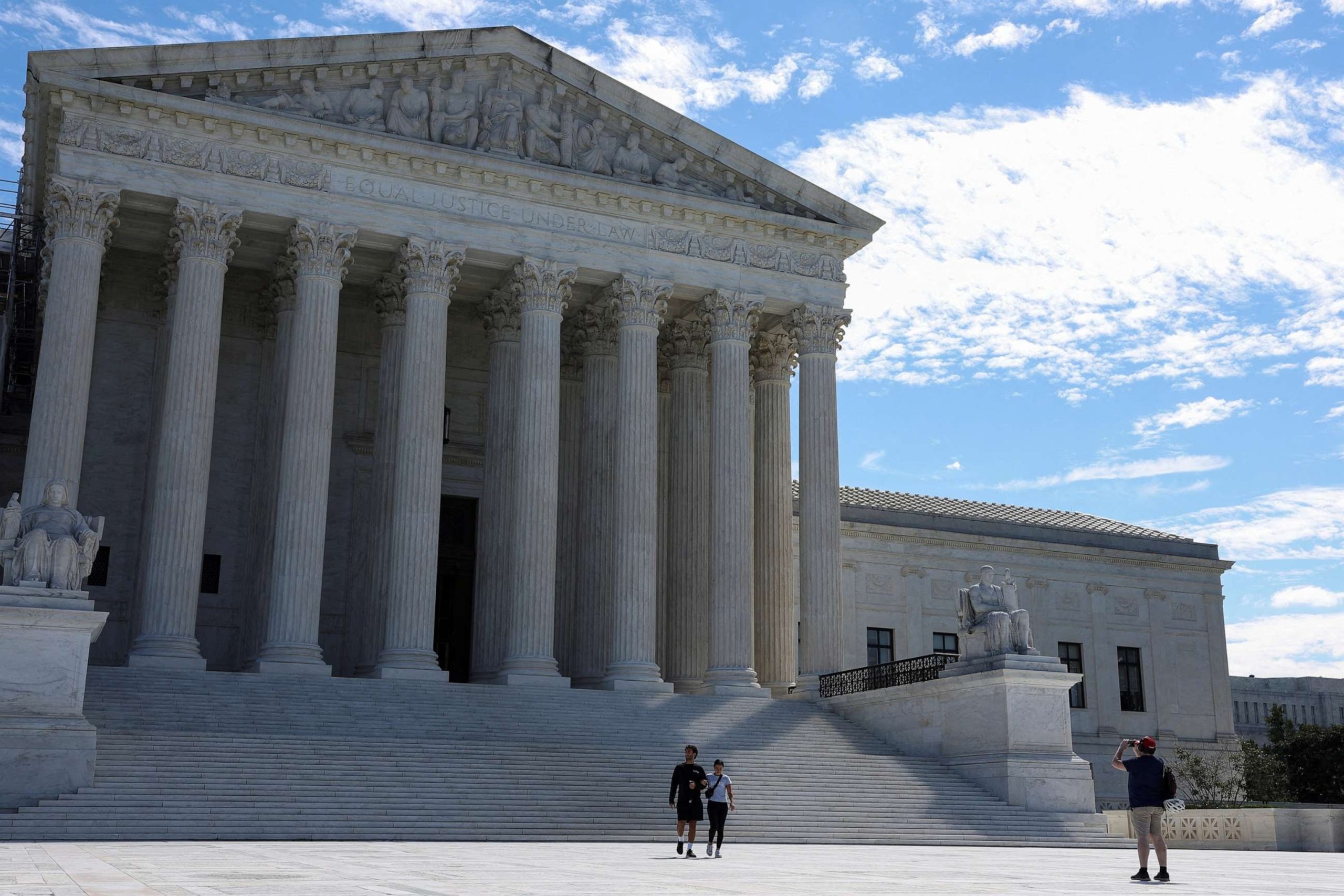The Supreme Court on Friday laid out a new test for determining when actions taken by government employees on social media — such as posting messages, deleting comments or blocking users — constitute official business verses personal conduct.
The distinction has become critical as millions of local, state and federal government workers increasingly use social media to communicate with the public, often on “mixed use” accounts that also include purely private, non-official content.
“When a government official posts about job-related topics on social media, it can be difficult to tell whether the speech is official or private,” wrote Justice Amy Coney Barrett in a unanimous opinion in the case Lindke v. Freed. “We hold that such speech is attributable to the state only if the official (1) possessed actual authority to speak on the state’s behalf, and (2) purported to exercise that authority when he spoke on social media.”
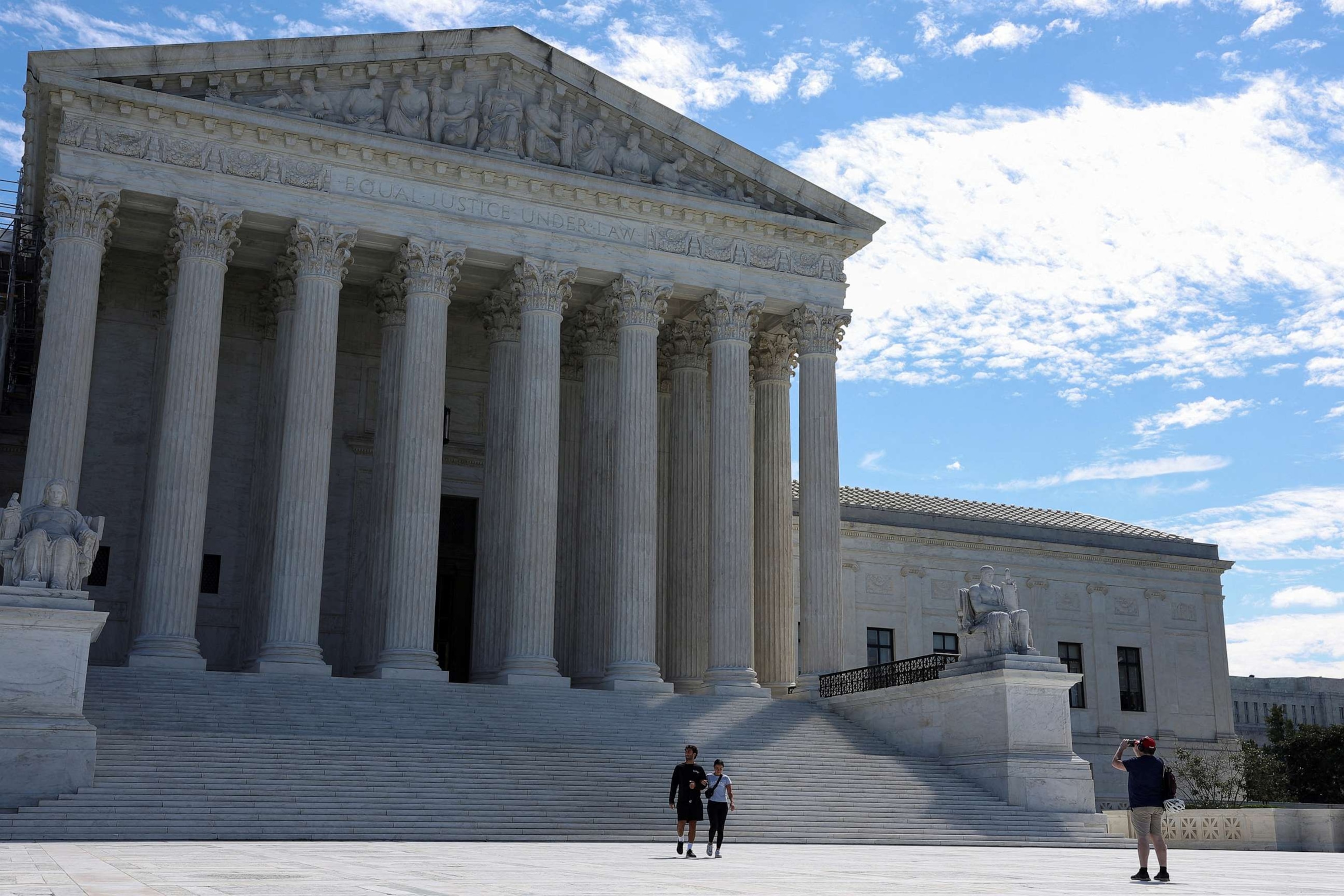
People visit the Supreme Court building in Washington, D.C., Aug. 31, 2023.
Kevin Wurm/Reuters, FILE
In short, Barrett explained, the distinction turns on “substance, not labels.”
The First Amendment, which protects freedom of speech, generally prohibits government employees from censoring public comments or blocking access to a social media account that offers official communications.
At the same time, government employees also retain First Amendment rights as private citizens, including the ability to maintain a personal social media page and to manage its content and access.
“Private parties can act with the authority of the state, and state officials have private lives and their own constitutional rights,” Barrett wrote. “Categorizing conduct, therefore, can require a close look.”
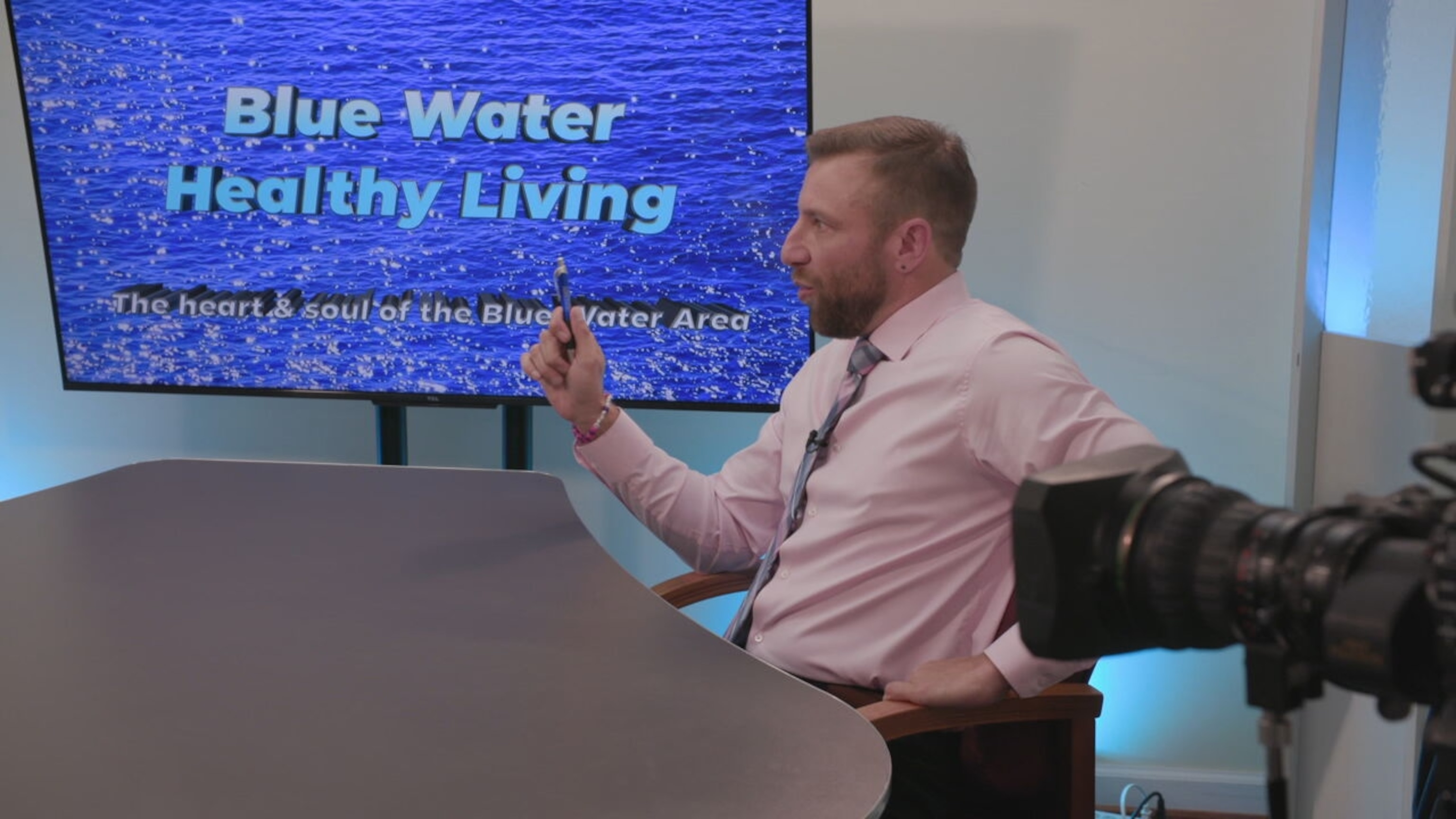
Local influencer and media personality Kevin Lindke of Port Huron, Mich., tapes online videos at a small studio in the basement of an insurance office.
ABC News
The court’s announcement of a new test came in a case involving a Michigan man – Kevin Lindke – who sued Port Huron City Manager James Freed after comments Lindke posted to Freed’s Facebook page were deleted and his access to the page was blocked entirely.
Lindke had criticized Freed’s handling of the COVID-19 pandemic. Freed insisted the Facebook account was personal and that COVID-related postings were not part of his official duties. Both men have insisted the First Amendment is on his side.
The decision Friday sends the case back to a federal appeals court for a second look.
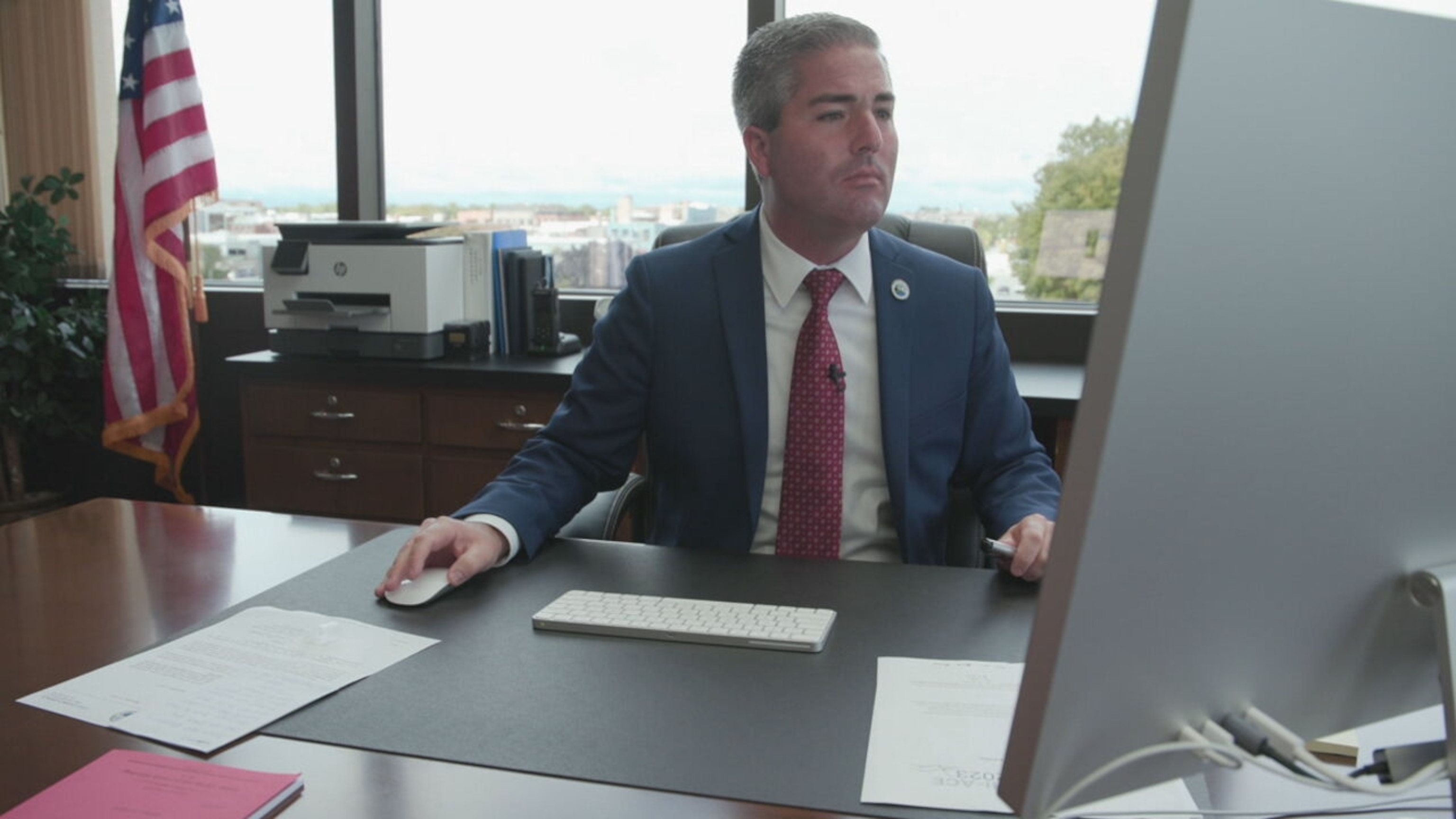
James Freed, city manager of Port Huron, Mich., says public officials have the right to maintain personal social media accounts free from restrictions on censorship and blocking.
ABC News
“I am very pleased with the outcome the justices came to,” Freed told ABC News in a statement. “The Court rejected the plaintiff’s appearance test and further refined a test for review by the Sixth Circuit [U.S. Court of Appeals]. We are extremely confident we will prevail there once more.”
Lindke told ABC News he is also “ecstatic.”
“A 9-0 decision is very decisive and is a clear indicator that public officials cannot hide behind personal social media accounts when discussing official business,” he said.
In recent years, there has been a growing number of disputes involving public officials allegedly silencing or censoring their critics online.
One of the most high-profile examples was a 2017 suit brought by a group of Twitter users who had been blocked by Donald Trump after criticizing his presidency. It reached the Supreme Court but was dismissed because Trump had left office.
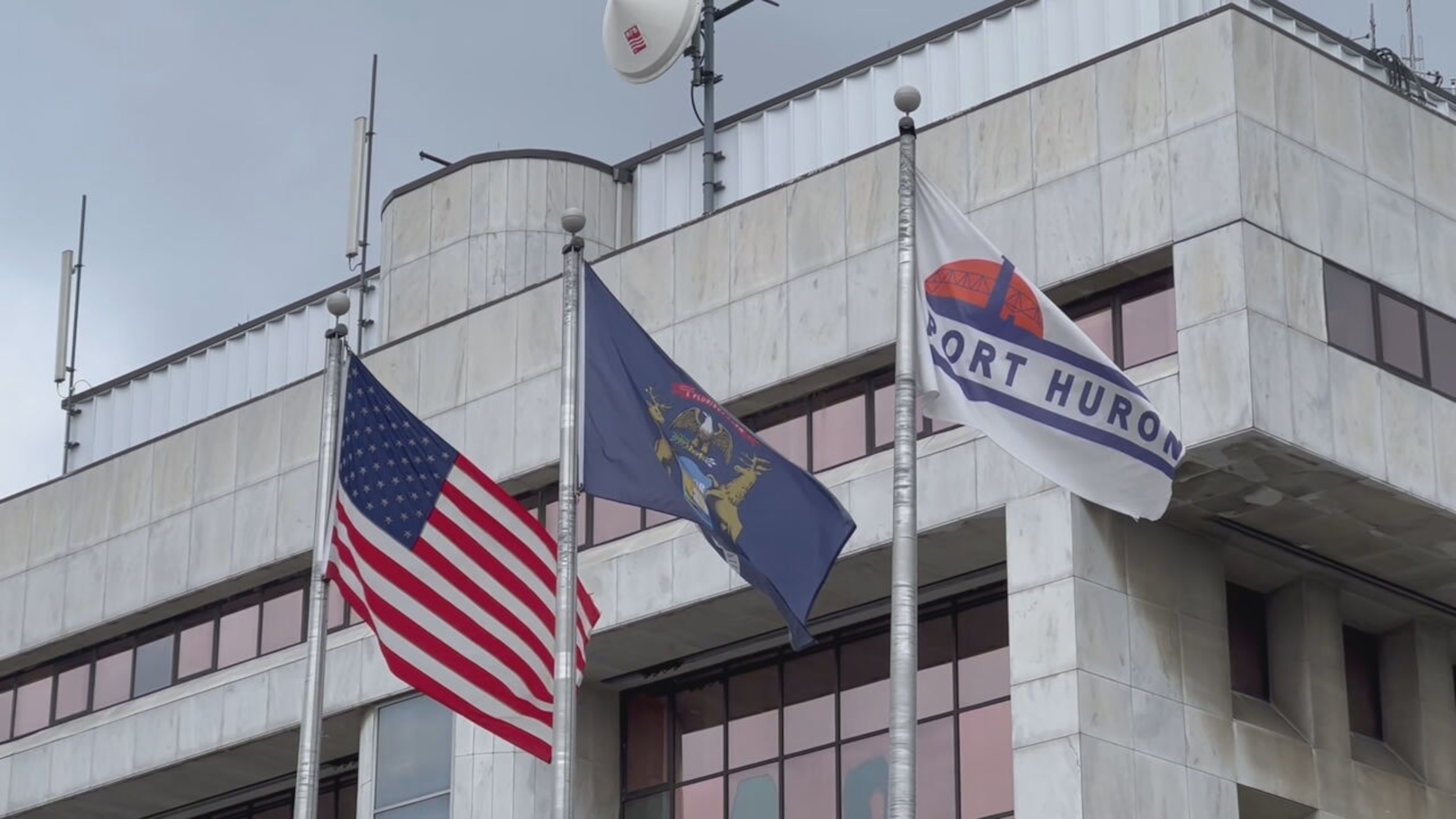
Port Huron, Mich., is at the center of a major Supreme Court case over whether public officials can block and censor criticism on social media accounts.
ABC News
The justices on Friday also addressed a similar case from California – O’Connor-Ratcliff v. Garnier — involving a group of parents who had sued two school board members for blocking their criticism on social media. In an unsigned, per curiam opinion, the court returned the case to a lower court for further review in light of the new test.
Barrett’s opinion in the Lindke case offers lower courts refined guidelines for resolving social media disputes in the future.
“A defendant like Freed must have actual authority rooted in written law or longstanding custom to speak for the state. That authority must extend to speech of the sort that caused the alleged rights deprivation,” Barrett wrote. “If the plaintiff cannot make this threshold showing of authority, he cannot establish state action.”
The Supreme Court recently set new rules regarding public officials blocking social media users on platforms such as Twitter and Facebook. This decision comes after several high-profile cases where public officials were sued for blocking individuals who disagreed with their policies or statements.
In a unanimous ruling, the Supreme Court stated that public officials cannot block users on social media platforms based on their viewpoints. This decision is based on the First Amendment, which guarantees the right to free speech and prohibits government officials from discriminating against individuals based on their opinions.
The ruling also clarified that social media platforms are considered public forums, where individuals have the right to engage in open and public debate. By blocking users who disagree with them, public officials are essentially silencing dissenting voices and violating the principles of free speech.
The Supreme Court’s decision has far-reaching implications for how public officials interact with constituents on social media. It sets a clear standard for what is considered acceptable behavior and ensures that individuals are not censored or discriminated against based on their viewpoints.
In response to the ruling, many public officials have revised their social media policies to comply with the new guidelines. Some have even gone as far as unblocking users who were previously banned for expressing opposing views.
Overall, the Supreme Court’s decision serves as a reminder of the importance of protecting free speech in the digital age. It reinforces the idea that social media platforms are public spaces where diverse opinions should be welcomed and respected. By setting clear rules for public officials, the court has taken a significant step towards ensuring that all voices are heard in the online public square.
